Lessons From the B&C Hall of Fame Class of 2011
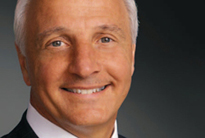
The smarter way to stay on top of broadcasting and cable industry. Sign up below
You are now subscribed
Your newsletter sign-up was successful
Click here to read profiles of the 2011 B&C Hall of Fame Inductees
While thousands have tried to write that perfect playbook for leadership, some people just naturally lead. And one of the most powerful tools a leader can use is learning from the past. Good leaders learn from all their past successes, but great leaders learn from both successes and times things didn't go as well as they had hoped.
That is why every year at this time, we ask the incoming class of the B&C Hall of Fame to answer one simple question, which really isn't so simple at all:
"What is the most important thing you learned in 2011 that will inform your decision-making in 2012?"
Some answers were longer than others, some more targeted than broad, but when assembled together, it paints a thorough picture of what some of today's elite TV executives are carrying into next year based on an exciting yet challenging 2011.
From risk-taking to channeling social media to listening to customers to just remembering to be thankful once in a while, our newest Hall of Famers shared their thoughts with us, and now we share them with you.
The class of 2011 is filled with chance-takers and change agents; decisive, reliable executives with a great belief in the power and future of the industry. Their answers offer a snapshot of where we are and a vision of where we're headed.
Joe Abruzzese
President, Advertising Dales, Discovery Communications
We tend to overreact to everything, either good or bad. And when it comes down to it, it's much more in the middle, so I've learned not to overreact to anything. The industry overreacts to new technology, overreacts to global, to scatter prices, to the economy when there's a lot less swings in it. And I've learned that in 2009, '10 and '11-and it's paying off. I think guys are a lot calmer as they look at the marketplace. It's kind of reassuring.
Another thing is don't be afraid to make a mistake. We're right a lot more times than we're wrong, and it really pays off when we're right.
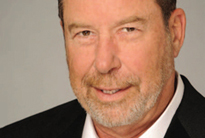
Ed Goren
Vice Chairman, Fox Sports Media Group
The smarter way to stay on top of broadcasting and cable industry. Sign up below
You can go back to when Bill Paley was running CBS -- back then it was the Tiffany Network -- content was king. Well, that hasn't changed. In fact it's become even more obvious in the world of television sports rights in 2011, and will carry over for many years to come. When we started Fox Sports in 1994, our initial rights deal with the NFL was for four years -- that was the norm back then. Today, we're seeing rights deals running for 10 years and more. And the competition with companies placing more and more sports content on national cable will become even more aggressive. The bottom line is that what you think is an expensive rights deal today will look like a bargain tomorrow.
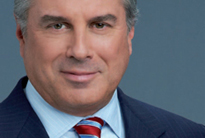
Ted Harbert
Chairman, NBC Broadcasting
Never ever, ever, ever, ever give up -- there's always a way.
The hardest thing to do is pulling out all the stops all the time. That's difficult to do, but it's what it takes these days. All the time. Really, you snooze you lose, for a second. Because viewers are tough, they have a right to be tough. Viewers have a million places to go, a million things to watch.
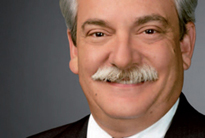
Andrew T. Heller
Vice Chairman, Turner Broadcasting System
It's not so much something I've learned as been reminded of this year: Technology is great and work is important, but they are no substitute for what really matters -- people, relationships and making each day count.
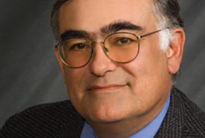
Michael L. LaJoie
Executive VP and Chief Technology Officer, Time Warner Cable
One of the most important things I've learned is that diversity is good business, and that you have to work to be inclusive. We appeal to the entire demographic, and from a human perspective, diversity is certainly something we embrace.
But it is also about embracing a diversity of ideas and being able to be inclusive of new and different models. So, diversity and inclusion has kind of taken on a broader and more rich meaning to me than it used to have, and I would extend it to products and technology and business models. So, rather than stiff-arming the competition, it's about figuring out how you accommodate diverse ideas; how do you include these kind of new approaches.
If we can provide people with access to their communication, information, entertainment on all their devices and give them control of everything that they are passionate about-email, text messaging, telephone services, TV shows, movies-that will be extremely powerful and put us in a very good position. Even if they are passionate about consuming Netflix, we're fine with that because we can help them do that.

John Muszynski
Chief Investment Officer, SMG Exchange
What I learned this year, and we absolutely must address this in the future, is that the consumer adapts to changes in content and content distribution and technology and all that good stuff, they adjust to it significantly faster than we the marketers do. If you look at the movement of viewership from television to online video, when you look at the use of social media, and you look at all the new apps for tablets, the consumer adapts to that so much faster than the marketer does, and with a significantly more creative lens.
We as marketers have to get more aggressive and speed up our ability to adapt and to follow the consumer.
One of the biggest issues that I had with this past upfront is that what really drove the pricing was not an increase in demand. There was a little bit of increase in demand, but the biggest driver of the pricing was supply erosion. So are these people just no longer consuming video? No. They're consuming it in online video, yet we're not moving money there and following the consumer at a fast enough rate. Thus we're raising the prices of television and we're not truly following where the consumer is going.
It's amazing to see how certain smaller companies, more mom-and-pop-type organizations, are using Twitter and Facebook to drive their business, yet the bigger brands haven't really scratched the surface yet.
I thought we moved faster. And I saw this year we moved at a slower rate than the consumer has, and I think we've got to get our butts in gear.
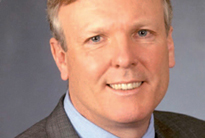
Tom Rutledge
Chief Operating Officer, Cablevision Systems Corp.
I've learned that customers no longer distinguish between the Internet and cable television, so it's not whether it's Internet or cable that matters, but how you sell the programming. Whether it's à la carte, in a package, everywhere or local, it's how you sell it that matters.
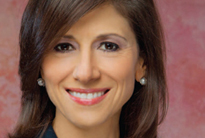
Nina Tassler
President, CBS Entertainment
I think we've all learned that social media is now a global force that influences our lives and business in ways we never imagined. It literally played a part in seismic social and political movements in the Middle East this year and has been the front line of information coming from national and worldwide disasters. Drilling down to our business, platforms such as Facebook, Twitter and YouTube are now established cultural barometers and drivers for conversation about our news, entertainment and sports programming. In fact, it feels like it was a year in which social media truly became embedded in everything we do on a daily basis, particularly in marketing, and as another tool in measuring audience behavior. It still may not directly impact most of our programming decisions, as those factors still have to be driven by creative and commercial factors, but social media will forevermore be a force in our world.
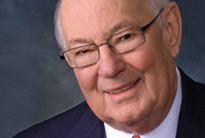
K. James Yager
CEO and Cofounder, Barrington Broadcasting Group
We can't do things in the future like we've done them in the past. I felt that we had perfected some of the things we were doing in morning [news]. I felt we were pretty much there, but the more I have seen what the Internet is doing and how interactive can interface with television, I think our approach to news and information has to change. It's changing at a number of stations as we speak. It's easier for us-we don't have giant talent contracts, so we can affect change a little faster. I think our whole approach to news has got to change if you believe news is the backbone of what a small-market station is.
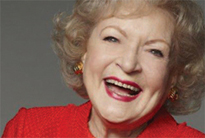
Betty White
Lifetime Achievement Award Winner
I think gratitude is the bottom line. I'm going to be 90 in January, and when you can still be having this much fun in the business you love, and be blessed with good health, if you don't live every moment being grateful, there's something wrong with you.
